WAKE UP and Smell the Burning of Our Constitution
The United States has proposed amendments to the International Health Regulations which will be voted on by the World Health Assembly scheduled for May 22-28, 2022.
Last updated: May 20, 2022
Please watch the (4) videos below…
YOU ARE ON THIS PAGE: DontYouDare.INFO
Quick link to ACTIVIST TOOLBOX: StopTheWHO.com
HERE IS THE ISSUE:
Below is an excerpt from the proposed amendments to the International Health Regulations.
Focus on the 15 words below (5 words underlined in red and 10 words highlighted in blue). The amendments seek to remove the 10 words that are highlighted in blue. “State Party” refers to any one of the 194 member nations of the World Health Organization.
Please watch the video below…
This is the fourth article in this series.
EXECUTIVE SUMMARY:
Download the PDF below for a printable version of the above graphic.
Many people misunderstand the relationships between the U.S. Constitution, treaties, Congressional-Executive agreements, Sole Executive Agreements and non-binding Executive agreements.
https://www.asil.org/insights/volume/2/issue/5/international-agreements-and-us-law
THE SUPREMACY CLAUSE (Article VI, Clause 2)
This Constitution, and the Laws of the United States which shall be made in Pursuance thereof;
and all Treaties made, or which shall be made, under the Authority of the United States, shall be the supreme Law of the Land;
Laws are made “in Pursuance” of the Constitution and must conform to it.
Treaties are made “under the Authority of the United States” and “shall be the supreme Law of the Land.”
John Foster Dulles April 12, 1952
The treaty making power is an extraordinary power, liable to abuse. Treaties make international law and also they make domestic law. Under our Constitution, treaties become the supreme law of the land. They are, indeed, more supreme than ordinary laws for congressional laws are invalid if they do not conform to the Constitution, whereas treaty law can override the Constitution. Treaties, for example, can take powers away from the Congress and give them to the President; they can take powers from the States and give them to the Federal Government or to some international body, and they can cut across the rights given the people by their constitutional Bill of Rights.
Reprinted in Hearings before a Subcommittee of the Senate Committee on the Judiciary on S. J. Res. 1 and S. J. Res. 43, 83d Cong., Ist Sess., 862 (1953).
The Supreme Court case listed below clearly shows that the Biden administration is attempting to give away powers that they are not allowed to give away.
Chan Ping v. United States, 130 U.S. 581, 609 (1889)
The powers of government are delegated in trust to the United States, and are incapable of transfer to any other parties. They cannot be abandoned or surrendered.
“We the People” granted the President the right to declare a National Emergency. President Biden does NOT have the right to abdicate that responsibility and hand it over to the Dictator-General of the World Health Organization.
The CDC clearly states that the International Health Regulations are legally binding and make a number of requirement of the member nations.
https://www.cdc.gov/globalhealth/healthprotection/ghs/ihr/index.html#about
CLICK HERE TO LEARN MORE ABOUT THE REQUIREMENTS
PRESENTATION OF EVIDENCE TO THE CORONA INVESTIGATIVE COMMITTEE
Please watch the testimony below:
https://archive.org/details/investigative_corona_committee_date_102?start=3896
https://odysee.com/@Corona-Investigative-Committee:5/Session-102-James-Roguski-Odysee:e
https://gettr.com/streaming/p17l38vb812
ALL OF HUMANITY
V.
THE WORLD HEALTH ORGANIZATION
EXHIBIT A: JOINT RESOLUTION APPROVING THE UNITED STATES’ JOINING THE WHO (PAGE 3)
EXHIBIT B: CURRENT INTERNATIONAL HEALTH REGULATIONS
https://apps.who.int/iris/bitstream/handle/10665/246107/9789241580496-eng.pdf?sequence=1
EXCERPT: Even if the amendments are “approved” by the World Health Assembly, each and every nation on earth will have 6 (now 10) months to flat out reject the amendments.
EXHIBIT C-1: This is where I first learned of the proposed amendments to the International Health Regulations on March 28, 2022.
Pay particular attention to the proposed amendments to Sections 2, 3 and 5 of Article 12, and Article 59.
https://healthpolicy-watch.news/wp-content/uploads/2022/02/C.L.2.2022-IHR-amendments-English.pdf
EXHIBIT C-2: The amendments seem to have remained hidden until they were first published on the WHO website on April 12, 2022.
https://apps.who.int/gb/ebwha/pdf_files/WHA75/A75_18-en.pdf
EXCERPT: The needle in the haystack:
The proposed amendments would remove the straight-jacket that currently restricts the actions of the WHO and would transfer so much UNFETTERED AUTHORITY to the Director-General that he would more appropriately be referred to as the Dictator General.
The existing period of time that each member nation has to notify the WHO of their REJECTION of any approved amendments is currently 18 months. The amendments would reduce that time period to 6 months.
Many thanks to Karen Bracken for creating the PDF document summary analysis of the proposed amendments to the International Health Regulations below:
EXHIBIT D: MEMBER NATIONS THAT HAVE VOICED SUPPORT FOR THE AMENDMENTS
Albania
Australia
Canada
Colombia
Costa Rica
Dominican Republic
Guatemala
India
Jamaica
Japan
Monaco
Montenegro
Norway
Peru
Republic of Korea
Switzerland
United Kingdom of Great Britain and Northern Ireland
United States of America
Uruguay
Member States of the European Union
EXHIBIT E: 75TH WORLD HEALTH ASSEMBLY
https://apps.who.int/gb/e/e_wha75.html
EXHIBIT F: PROVISIONAL AGENDA (see section 16.2)
https://apps.who.int/gb/ebwha/pdf_files/WHA75/A75_1-en.pdf
EXHIBIT G: Centers for Disease Control and Prevention (CDC), Department of Health and Human Services (HHS). ACTION: Final rule. (PAGES 6969-6970)
https://www.govinfo.gov/content/pkg/FR-2017-01-19/pdf/2017-00615.pdf
EXCERPT: The definition of “public health emergency” was redefined to come into lockstep with the WHO. This is “void for vagueness.”
Entered into the Federal Register on the last full day of the Obama Administration.
DELEGATES TO PREVIOUS ASSEMBLY MEETINGS:
The following is an educated guess.
The link on which the WHO has posted a PDF of the delegates that attended previous World Health Assembly meetings has a specific format and seems to be following a pattern.
The first link does not work, but I suspect that, when the WHO feels like it, the delegate list will be placed here:
2022 75th World Health Assembly
https://apps.who.int/gb/ebwha/pdf_files/WHA75/A75_DIV1REV1-en.pdf
These links work...
2021 74th World Health Assembly
https://apps.who.int/gb/ebwha/pdf_files/WHA74/A74_DIV1REV1-en.pdf
2020 73th World Health Assembly
https://apps.who.int/gb/ebwha/pdf_files/WHA73/A73_DIV1REV1-en.pdf
2019 72th World Health Assembly
https://apps.who.int/gb/ebwha/pdf_files/WHA72/A72_DIV1REV1-en.pdf
and so on...
It is reasonable that the WHO only publishes the details of the attendees AFTER the event has begun and the attendees have presented their credentials to enter. I do not see anything wrong with that.
However, it is ABSOLUTELY UNACCEPTABLE that the names of the delegates who will be attending the upcoming Assembly have been occult (hidden) from the public in every nation of the world.
I have also been able to locate the list of delegates who have attended the most recent meetings:
List of Delegates and Other Participants (Special Session of the World Health Assembly in November 2021)
https://apps.who.int/gb/ebwha/pdf_files/WHASSA2/SSA2_DIV1REV1-en.pdf
List of members and other participants (Executive Board Meeting in January 2022)
https://apps.who.int/gb/ebwha/pdf_files/EB150/B150_DIV1Rev1-en.pdf
DISCOVERY:
To my knowledge, the following occult (hidden) document has NOT been made available to the public. One would think that by now (April 29, 2022) the list of people who have been “chosen” to attend the 75th World Health Assembly must have been chosen but, to my knowledge, no such list has been published by any agency or ministry in any of the 194 member nations.
LIST OF DELEGATES WHO WILL BE ATTENDING THE 75TH WORLD HEALTH ASSEMBLY (MISSING)
What would YOU do if you learned that a United States’ delegate to the World Health Organization had submitted a proposal to transfer the sovereignty of 194 nations over to the WHO??
Please watch this video…
TAKE ACTION #1:
RAISE AWARENESS - SPREAD THE WORD
Share this video. Send a text message to everyone you know. Send an email to everyone you know, and everyone you don’t know. Alert every media outlet on the planet.
Feel free to download it and re-post it on your own channel.
https://www.bitchute.com/video/mHmeGUgoQ7LO
Use the hashtag #DontYouDare
Share this link:
KEY TAKEWAYS:
The International Health Regulations (IHR) are legally binding and supercede the United States Constitution. All the nations of the world have already agreed to the existing International Health Regulations.
The United States has proposed amendments to the legally binding International Health Regulations that will be voted upon at the next World Health Assembly this May 22, 2022 to May 28, 2022. CLICK HERE FOR OFFICIAL DOCUMENT
These proposed amendments will cede additional sovereignty, control and legal authority over to the World Health Organization.
These amendments will NOT require approval by 2/3 of the United States Senate. If they are approved (as submitted by the United States) by a simple majority of the 194 member countries of the World Health Assembly countries), these amendments would enter into force as international law just six months later (November 2022). The details of this are not crystal clear. I believe this information to be accurate.
It is not known if the amendments will be voted upon individually or as a complete package.
The amendments will give the Director General of the WHO the power to unilaterally declare a Public Health Emergency of International Concern (PHEIC) even over the objection of the country dealing with an outbreak of disease.
According to changes made to U.S. regulations that were published one day before Donald Trump was inaugurated (January 19, 2017), the definition of a “Public Health Emergency” in the United States now includes the declaration of a PHEIC by the WHO.
A unilateral declaration of a PHEIC by the WHO will enable the declaration of a Public Health Emergency by the Secretary of the Department of Health and Human Services.
The amendments proposed by the United States would also give the Director General of the WHO the legal authority to unilaterally issue an “intermediate public health alert (IPHA).” The criteria for the issuance of an IPHA is simply that “the Director-General has determined it requires heightened international awareness and a potential international public health response.”
The amendments will also give “regional directors” within the WHO the legal authority to declare a Public Health Emergency of Regional Concern (PHERC).
Yes people, the United States wants to hand over our sovereignty to Regional Directors at the WHO and give them the power to “PHERC” us and “PHERC” the world, one region at a time. “PHERC” that!
September 24, 2021
The Review Committee on the Functioning of the International Health Regulations (IHR) published their analysis of the functioning of the IHR.
In the prolonged and unprecedented COVID-19 pandemic, some have stated that the IHR “are a conservative instrument that constrain rather than facilitate rapid action”.2 What we, the Review Committee on the Functioning of the IHR (2005) during the COVID-19 Response, found instead was that much of what is in the IHR is well considered, appropriate, and meaningful in any public health emergency. However, many countries only applied the IHR in part, were not sufficiently aware of these regulations, or deliberately ignored them, 3, 4 and that WHO did not make full use of the powers given to it through the wording and spirit of the IHR.
Thus, the IHR are not deficient, but their implementation by member states and by WHO was inadequate.
https://www.thelancet.com/journals/lancet/article/PIIS0140-6736(21)01911-5/fulltext#box1
Their report clearly stated the following:
As we reviewed the IHR article by article, we found that much of what is in the Regulations is well considered, appropriate and meaningful in any public health emergency of international concern. However, it was clear to us that in the context of a pandemic, countries that in 2005 approved the IHR, in 2020 only applied the Regulations in part, were not sufficiently aware of them, or deliberately ignored them.
ignorantia juris non excusat (ignorance of the law is no excuse)
https://www.who.int/publications/m/item/a74-9-who-s-work-in-health-emergencies
The Review Committee found that the failures rested squarely on the shoulders of the WHO and many of the 194 member states, not on the International Health Regulations themselves. The Review Committee recommending NOT making any changes in the regulations.
However, that recommendation was ignored by the United States who has proposed a number of amendments to the International Health Regulations. These amendments will be discussed at the upcoming World Health Assembly this May 22, 2022 to May 28, 2022. In this author’s opinion, unless “We The People” speak up, it is likely that these amendments will be approved by the World Health Assembly and more of our sovereignty will be lost.
Please realize that amendments to the International Health Regulations supercede and override the United States Constitution.
January 18, 2022
Loyce Pace, the Assistant Secretary of the Office of Global Affairs within the Department of Health and Human Services officially submitted to the World Health Organization a number of proposed amendments to the International Health Regulations. These amendments would supercede and override the United States Constitution.
January 20, 2022
Dr. Tedros Adhanom Ghebreyesus, the Director General of the World Health Organization, officially transmitted the proposed amendments to the member countries of the World Health Assembly.
This letter constitutes a formal communication of the text of the amendments proposed by the United States of America.
SOURCE:
https://healthpolicy-watch.news/wp-content/uploads/2022/02/C.L.2.2022-IHR-amendments-English.pdf
January 26, 2022
Loyce Pace, the Assistant Secretary of the Office of Global Affairs, which is part of the Department of Health and Human Services, made this cryptic announcement via Twitter.

AMENDMENTS TO THE INTERNATIONAL HEALTH REGULATIONS
By submitting the proposed amendments to the WHO at this time, the United States ensured that the reform proposals must be put on the agenda to be publicly debated at the World health Assembly. The timing of the letter is very important because it was submitted by the United States to the WHO just slightly in advance of the deadline for such submissions, which is four months prior to the upcoming World Health Assembly which is scheduled to occur from May 22, 2022 until May 28, 2022.
Article 55
Amendments
1. Amendments to these Regulations may be proposed by any State Party or by the Director- General. Such proposals for amendments shall be submitted to the Health Assembly for its consideration.
2. The text of any proposed amendment shall be communicated to all States Parties by the Director-General at least four months before the Health Assembly at which it is proposed for consideration.
3. Amendments to these Regulations adopted by the Health Assembly pursuant to this Article shall come into force for all States Parties on the same terms, and subject to the same rights and obligations, as provided for in Article 22 of the Constitution of WHO and Articles 59 to 64 of these Regulations.
January 26, 2022
On behalf of more than 40 Member States, we are pleased to propose a Decision for the Executive Board, asking Member States of WHO and States Parties of the International Health Regulations (IHR) of 2005, to discuss targeted amendments to the IHR (2005) and address specific issues, challenges, or gaps that are crucial to their effective implementation. The draft decision also requests the Working Group on Preparedness & Response (WGPR) establish a dedicated process for in-depth discussions of targeted amendments to the IHR and facilitate a transparent, Member State-led process.
The United States led an inclusive and transparent process to develop this decision, as we are mindful that updating and modernizing the IHR are critical to ensuring the world is better prepared for and can respond to, the next pandemic.
Finally, the United States formally transmitted its proposals for targeted amendments to the IHR (2005) to the Director General consistent with IHR Article 55 for circulation to States Parties at least four months in advance of WHA 75.
We are confident of continued progress on the various complementary WHO strengthening work streams:
(1) targeted amendments to the International Health Regulations (IHR) (2005),
(2) a full review of by the WGPR
(3) an intergovernmental negotiating body (INB) to develop a new international instrument on pandemic preparedness and response, and
(4) governance improvements at WHO, starting with an informal group and then establishing a Task Team of Member States to work with the Secretariat.
List of co-sponsors includes:
Albania
Australia
Canada
Colombia
Costa Rica
Dominican Republic
Guatemala
India
Jamaica
Japan
Monaco
Montenegro
Norway
Peru
Republic of Korea
Switzerland
United Kingdom of Great Britain and Northern Ireland
United States of America
Uruguay
Member States of the European Union
SOURCE:
February 2, 2022
FACT SHEET: The Biden Administration’s Commitment to Global Health
Last week, the United States once again demonstrated that commitment, by leading a successful decision at the WHO Executive Board meeting to strengthen the International Health Regulations (2005).
February 23, 2022
The U.S. Ambassador and others attended a meeting of the Executive Board of the WHO in Geneva, Switzerland.

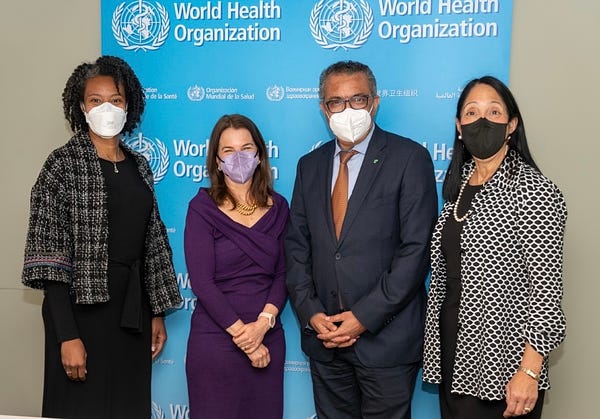
Loyce Pace is one of the United States’ delegates to the World Health Assembly.
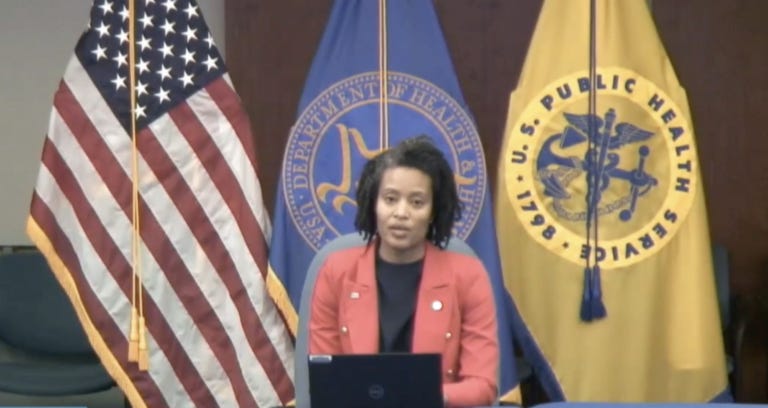
The United States has proposed amendments to the International Health Regulations that will impact everyone on earth. Negotiations are currently going on behind the scenes between the United States and the other 193 member nations of the WHO to lobby for approval of the amendments proposed by the United States.
“We really tried to skim off what we thought would be the most critical enhancements that could be made. In terms of what they entail, whether we are talking about improved alert systems or other components, some of the issues are maybe tougher to tackle than others.
“I think what is encouraging for us is that we had close to 50 member states signing onto this approach. We are really quite hopeful that we will see success in this effort, sooner rather than later.”
Here are the current International Health Regulations:
Here are the amendments to the International Health Regulations that have been proposed by the United States and are likely to be adopted by the World Health Assembly scheduled to take place from May 22, 2022 to May 28, 2022:
I first discovered the proposed amendments during an internet search in late March 2022.
I first noticed that the official version of this document appeared on the WHO website sometime in the middle of April, 2022
https://apps.who.int/gb/ebwha/pdf_files/WHA75/A75_18-en.pdf
SUMMARY OF AMENDMENTS:
5. Increased surveillance
6. Headed towards a “One Health” approach
9. Direct attack on sovereignty via outside data
10. 48 hour time period to respond to WHO
11. WHO may unilaterally decide
12. Regional (PHERC) and intermediate emergencies
13. Accept the offer of help from the WHO in 48 hours
15. Deployment of expert teams (recommendations)
18. Enable health care workers to be brought in.
48. Almost any country can claim to be an “affected party.”
49. The deliberations of the Emergency Committee are shared with states, but not necessarily with the public.
53. The “Compliance Committee” will have investigatory powers within each country – another loss of sovereignty.
59. Amendments come into effect more quickly (in 6 months instead of 18).
DETAILED ANALYSIS BELOW…
5
Author’s Comments:
Article 5, Section 1:
The Universal Health Periodic Review mechanism is Big Brother on a global scale.
Article 5, New Section 5:
The WHO shall develop early warning criteria, assess risk and convey that risk assessment where appropriate. This is purposefully vague and open to abuse.
This opens the door to the type of “modeling and simulation” “predictions” that exaggerated the risk from COVID-19 over two years ago.
6
Author’s Comments:
Article 6, Section 1:
Let’s give the WHO control of farming, ranching and the environment too. This is very much in keeping with the concepts of the “One Health” propaganda.
The idea for this proposed amendment seems to be in alignment with this article:
Beyond COVID-19: Reimagining The Role Of International Health Regulations In The Global Health Law Landscape
https://www.healthaffairs.org/do/10.1377/forefront.20211027.605372/
Article 6, Section 2:
Give the WHO your genetic research so that they can pass it along to pharmaceutical companies for quick profiteering.
9
Author’s Comments:
Article 9, Section 1:
Sure, let’s give the WHO the legal authority to declare a Public Health Emergency of International Concern (PHEIC-fake) within a country without that country’s permission.
10
Author’s Comments:
Article 10:
Act quickly. Hurry up. Every hour counts. Generate panic and fear and trigger a PHEIC state of emergency A.S.A.P.
11
Author’s Comments:
Article 11, Section 1:
Give the WHO the legal authority to use information that is “in the public domain,” whether the country in question refutes the information or not.
Article 11, Section 2:
The WHO must spread its “information.”
Article 11, Section 3:
The WHO must ignore the will of the country in question and dictate to them.
Article 11, Section 4:
Empower the WHO to collect and regurgitate information that is already publicly available because that will magically transform that information into authoritative and independent information, even if the country in question disagrees.
12
Author’s Comments:
Article 12, Section 2:
A PHEIC (fake) can be declared even if it is just a “potential” emergency. The Director General of the WHO may seek the advice of the Emergency Committee, but the Director General is not obligated to do so.
Article 12, Section 3:
The sovereignty of the country in question is irrelevant.
Article 12, Section 4:
The information required to declare a PHEIC can come from pretty much anywhere.
Article 12, Section 6:
This section creates an entirely new situation - an Intermediate Public Health Alert. Now even minor, isolated outbreaks can be used to trigger panic and fear worldwide.
Comments from the Review Committee:
Article 12, Section 6:
The Review Committee on the Functioning of the International Health Regulations (IHR) clearly reported that they did not agree with the use of an Intermediate Public Health Alert.
There was a marked lack of national responses both to WHO's first alerts—eg, published risk assessments and guidance on public health response and statements by the WHO Director-General—and to the Public Health Emergency of International Concern declaration. This is why we believe that a formal intermediate level of alert would not have improved the situation. In our view, better adherence to and use of the existing IHR obligations could have provided more meaningful alert and improved the early response.
https://www.thelancet.com/journals/lancet/article/PIIS0140-6736(21)01911-5/fulltext#box1
The Review Committee pointed out a number of potential drawbacks to an Intermediate Public Health Alert:
The Review Committee concluded that introducing a formal intermediate level of alert would not solve the current problem of lack of action on WHO advice and recommendations.
https://www.who.int/publications/m/item/a74-9-who-s-work-in-health-emergencies
The Review Committee also made it clear that the Emergency Committee of the WHO needed to look in the mirror and be more transparent.
COVID-19 Emergency Committee and the determination of a public health emergency of international concern
Emergency Committee
(1) WHO should make its decision-making process for convening an Emergency Committee available on its website and ensure that it continues to be based on a risk assessment.
(2) WHO should make available to States Parties through the EIS all the information and technical documentation it provides to the Emergency Committee for each of its meetings, including findings of rapid risk assessments. WHO should allow sufficient time for Emergency Committee members to deliberate, reach a conclusion and prepare their advice to the Director-General. Emergency Committee members should not be required to reach a consensus; if there is division, divergent views should be noted in the Committee’s report, consistent with Rule 12 of the Emergency Committee terms of reference.
Raising the alarm
(1) WHO should adopt a more formal and clearer approach to conveying information about the Emergency Committee’s meetings to States Parties and the public.
Article 12, Section 7:
This section creates yet another entirely new situation and extends the power and legal authority to the lower level of Regional Director.
This amendment would give the legal authority to declare a Public Health Emergency of Regional Concern (PHERC) to each of the 6 Regional Directors within the WHO.
Yes people, the United States wants to hand over our sovereignty to Regional Directors at the WHO and give them the power to “PHERC” us, and “PHERC” the world, one region at a time. “PHERC” that!
The WHO’s administrative “regions” are certainly not aligned with any patterns of travel by which transmissible diseases may be spread around the world.
This is just a blatant ploy to give unelected bureaucrats more power.
13
Author’s Comments:
Article 13, Sections 3 and 4:
To paraphrase Former President Reagan:
“We are from the WHO and we are here to help you.”
“If you do not want our help, then you have only 48 hours to explain to the world why you want the WHO to leave you alone.”
15
Author’s Comments:
Article 15, Section 2:
How in the world can “the deployment of expert teams” be interpreted as a “recommendation?”
This sounds more like an invasion and a violation of sovereignty.
18
Author’s Comments:
Article 18:
This amendment leads one to question whether or not the movement of health care workers around the world is currently an issue? Is this clearing the way for an invasion of “health care workers” as mentioned in Article 15 above?
ICAO - International Civil Aeronautics Administration
IMO - International Maritime Organization
WTO - World Trade Organization
48
Author’s Comments:
Article 48:
“Otherwise impacted” is so vague that it is actually meaningless.
49
Author’s Comments:
Article 49:
Any and all information should be shared with the general public, not just with the “member states.”
The “noble lie” of claiming to protect the public from information for their own good is nothing more than an excuse to hide information and lie about what is really happening.
Whatever happened to openness, transparency and the public’s right to know?
53
Author’s Comments:
Article 53:
This amendment is clearly designed to create divisiveness by pitting nations against each other. It offers the illusion of change, but it has provides no authority to enforce any form of action or compliance. In my opinion, this is just another layer of bureaucracy that wastes more time, money, energy and human resources. This is just bureaucrats recommending more bureaucracy. This just feeds the beast.
59
Author’s Comments:
Article 59:
The United States may have saved the scariest amendment for last.
The United States is seeking to set a up situation whereby these and any future amendments to the International Health Regulations can be enacted and enforced within 6 months instead of 18 months.
I wonder what that means for the future?
If you are concerned about the loss of sovereignty and the degradation of your fights and freedoms, they you might want to share your opinions with the United States delegates to the World Health Assembly:
Loyce Pace, the Assistant Secretary of the Office of Global Affairs within the Department of Health and Human Services officially submitted to the World Health Organization a number of proposed amendments to the International Health Regulations. These amendments would supercede and override the United States Constitution.
Contact Ms. Loyce Pace and share your opinions with her:
WHA Delegate: Ms. Loyce Pace, Assistant Secretary, Global Affairs, Department of Health and Human Services CONTACT: @HHS_ASGA @globalgamechngr
https://www.hhs.gov/about/leadership/loyce-pace.html
https://www.hhs.gov/about/agencies/oga/contact/index.html
Phone: 202-690-6174, 202-260-0399
Email: globalhealth@hhs.gov
And contact her boss also:
This is an issue of worldwide concern. People around the world are encouraged to contact their countries’ delegates to the World Health Assembly and express their opinions.
List of Delegates and Other Participants
https://apps.who.int/gb/ebwha/pdf_files/WHASSA2/SSA2_DIV1REV1-en.pdf
List of members and other participants
https://apps.who.int/gb/ebwha/pdf_files/EB150/B150_DIV1Rev1-en.pdf
Please watch the video below…
https://www.bitchute.com/video/TLdfX2WtackG/
by James Roguski
The old system is crumbling, and we must build its replacement quickly.
If you are fed up with the government, hospital, medical, pharmaceutical, media, industrial complex and would like to help build a holistic alternative to the WHO, then feel free to contact me directly anytime.
JamesRoguski.substack.com/about
JamesRoguski.substack.com/archive
310-619-3055



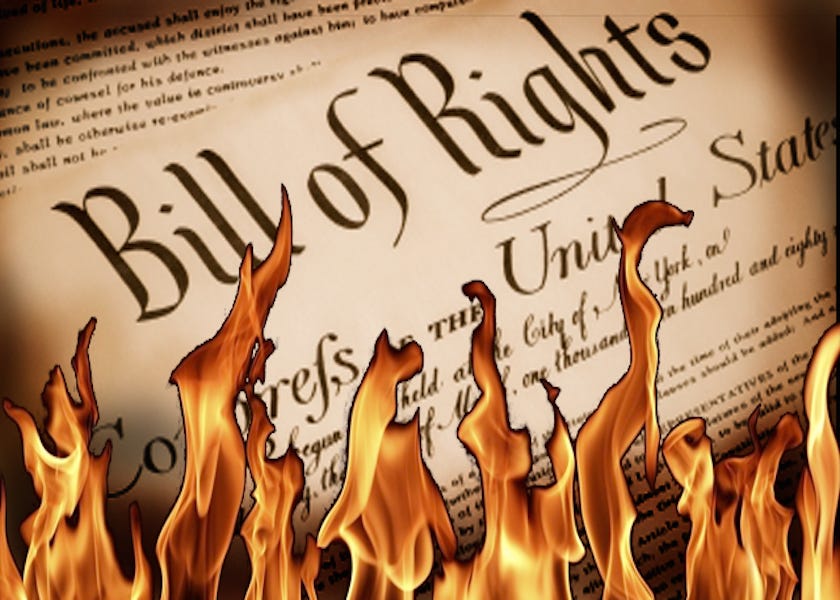




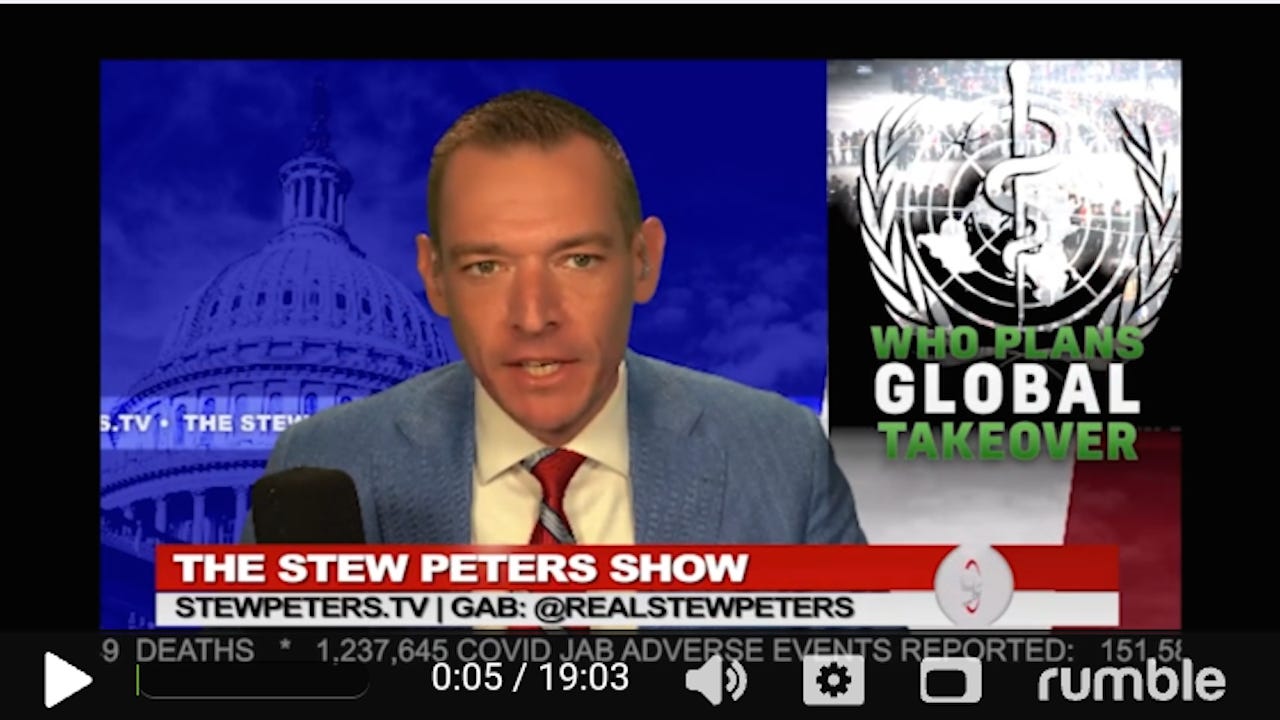

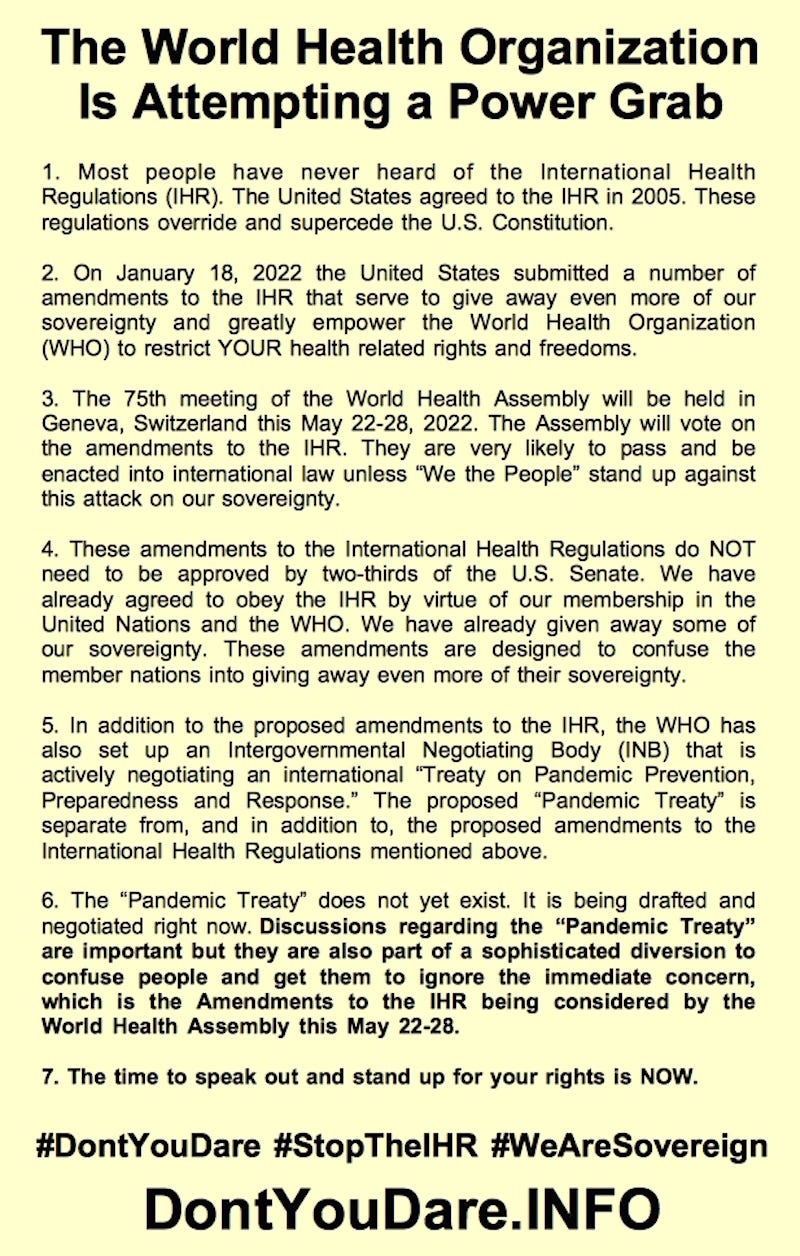
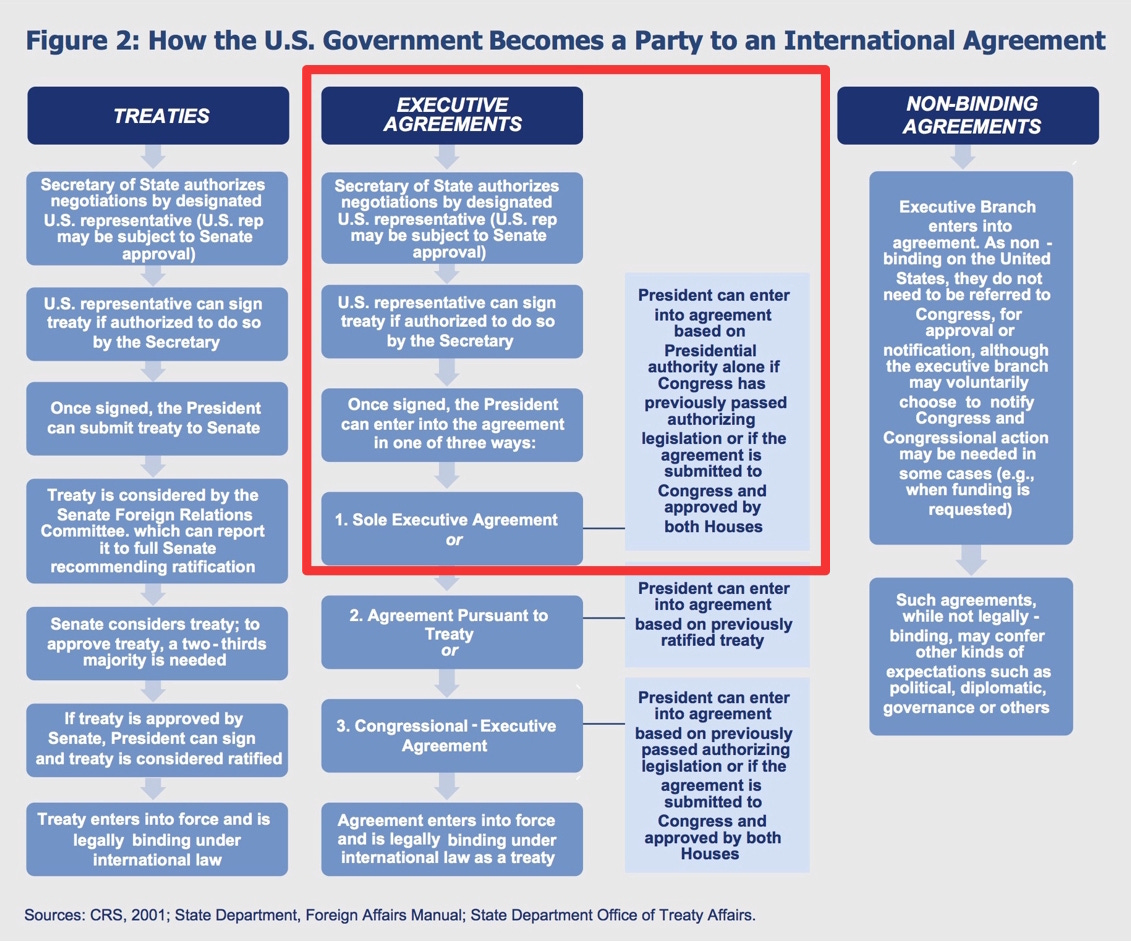

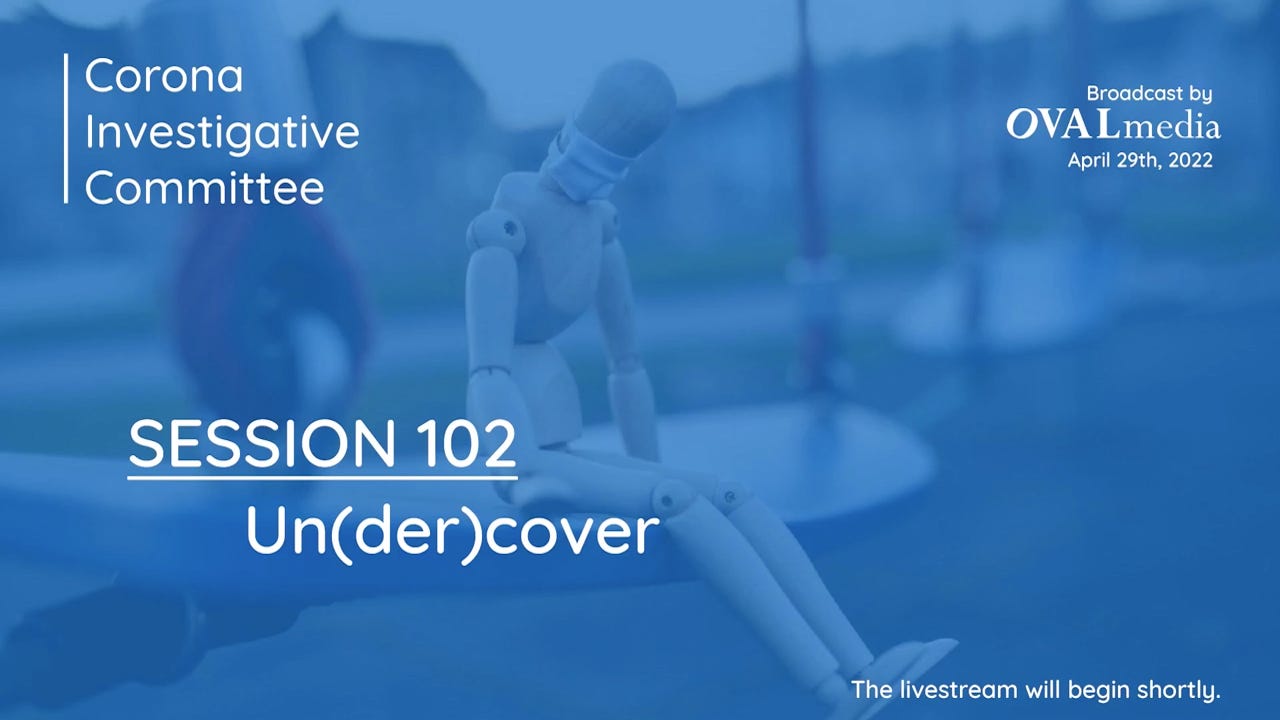

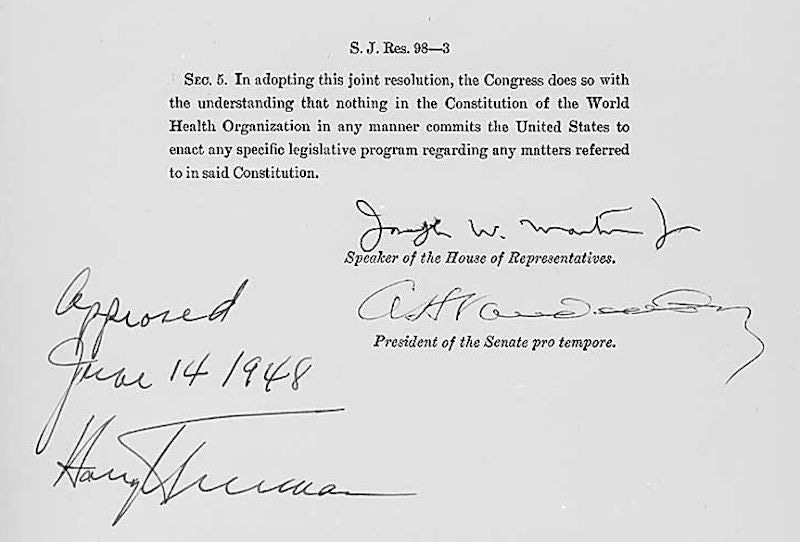


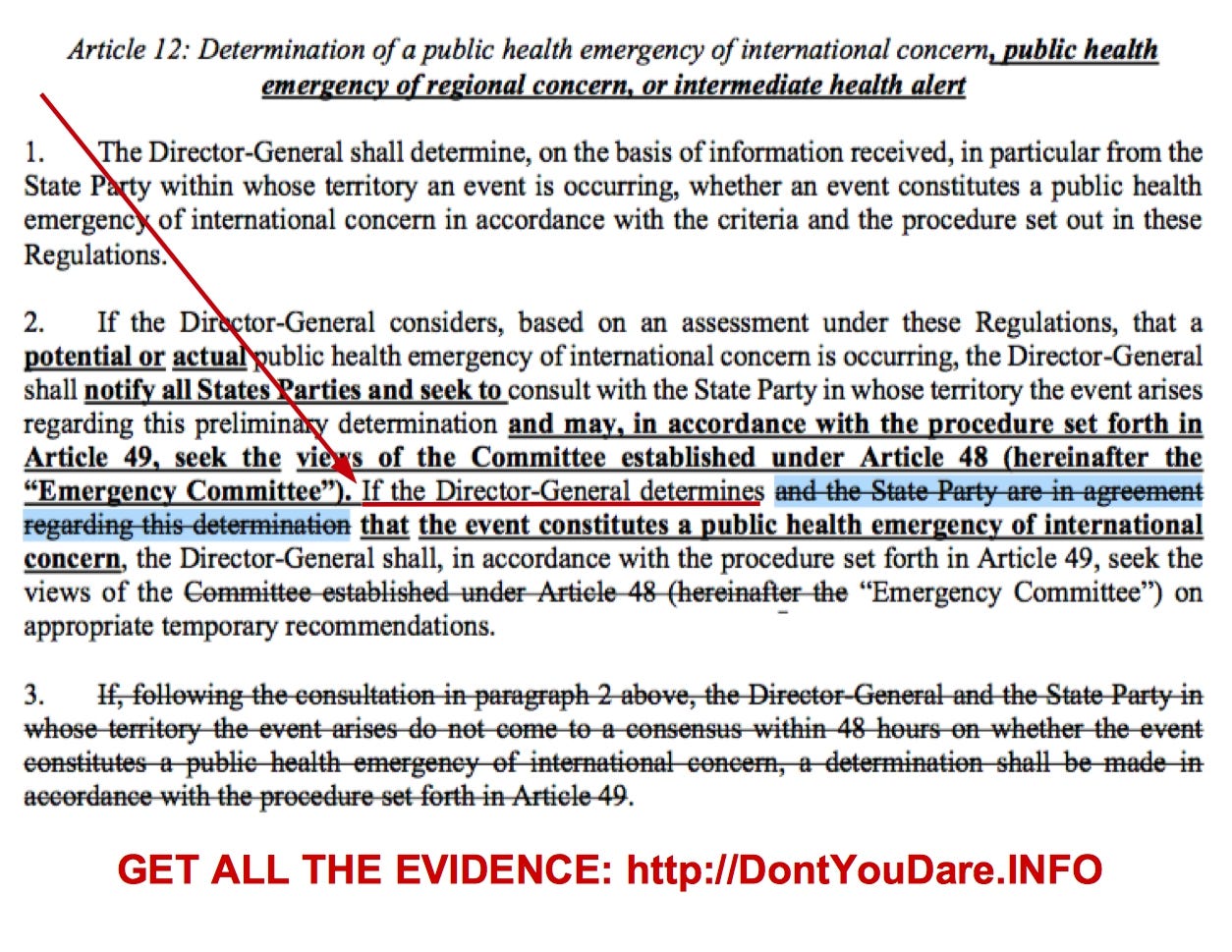
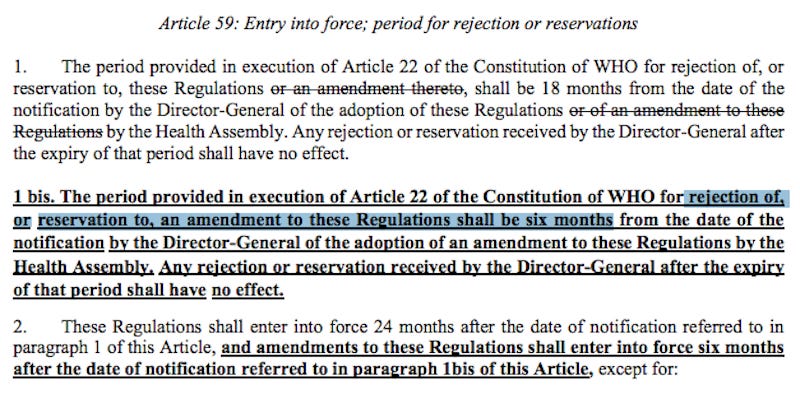


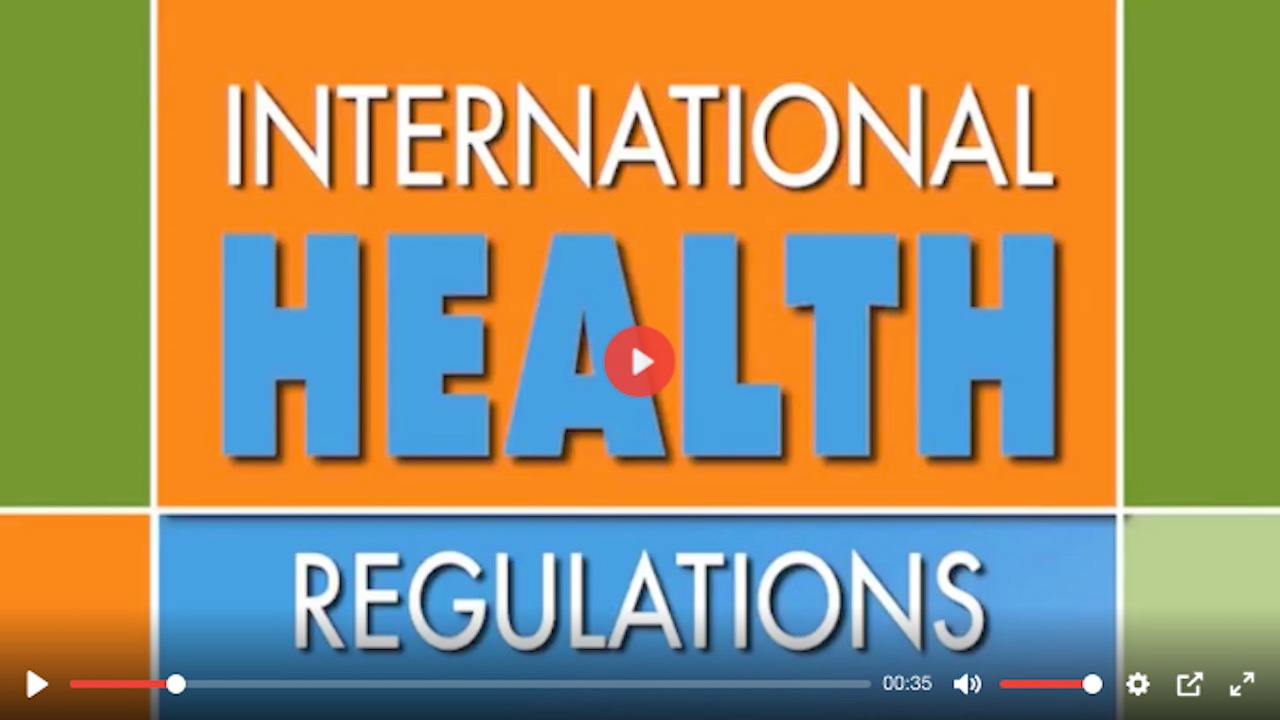










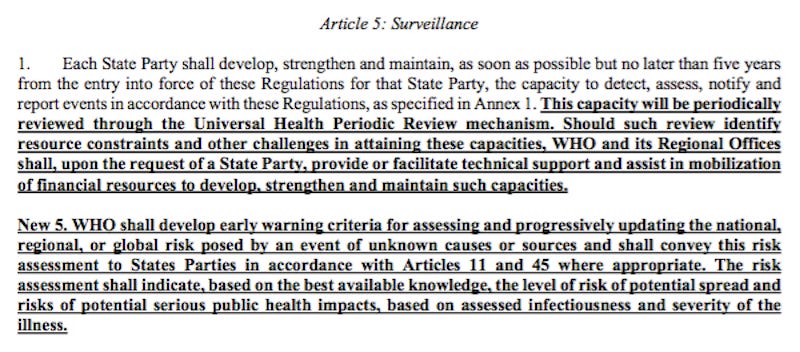

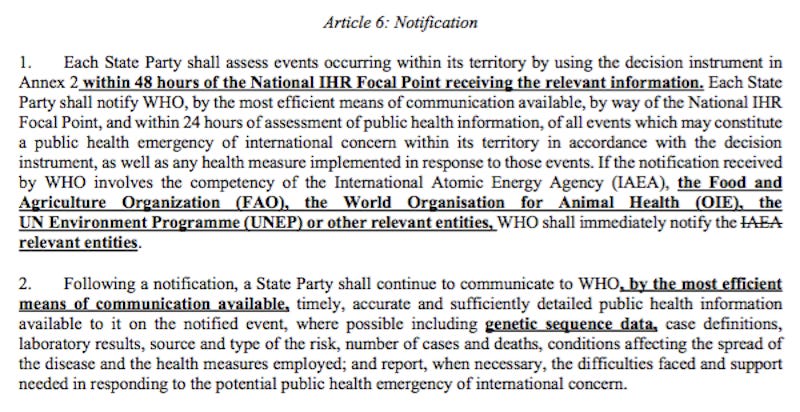



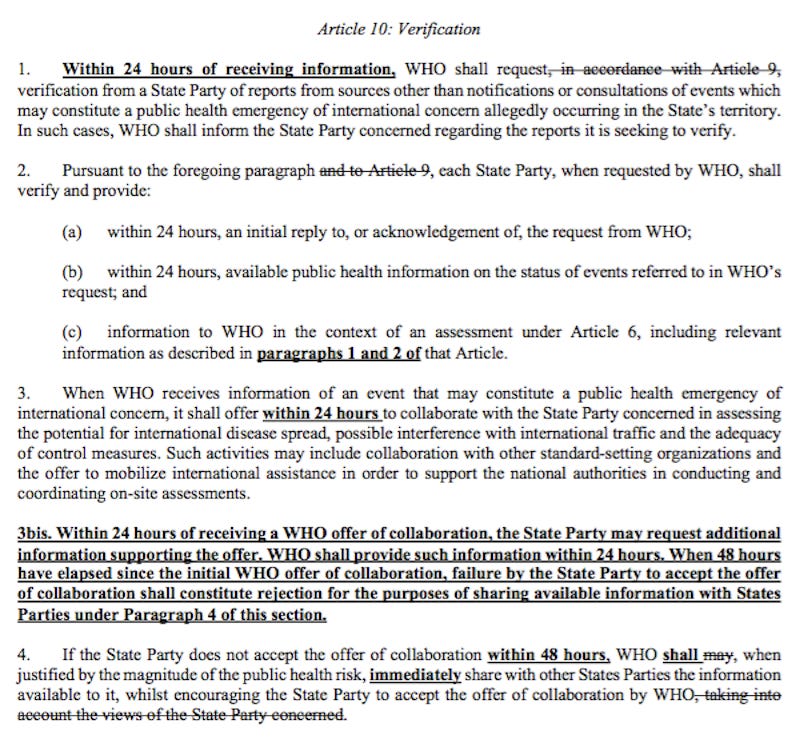

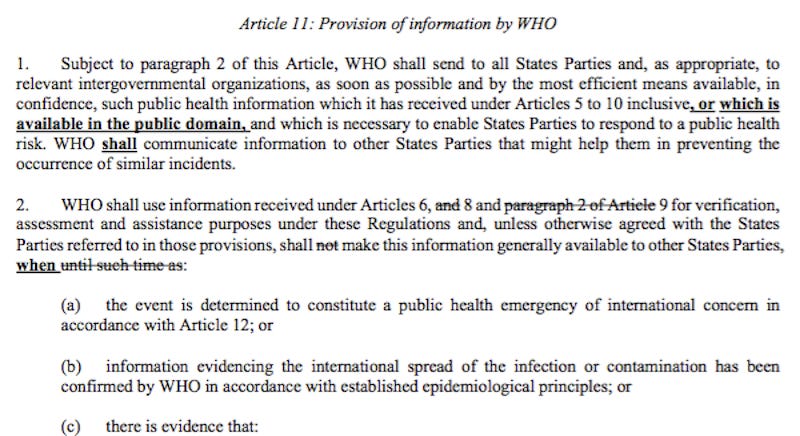




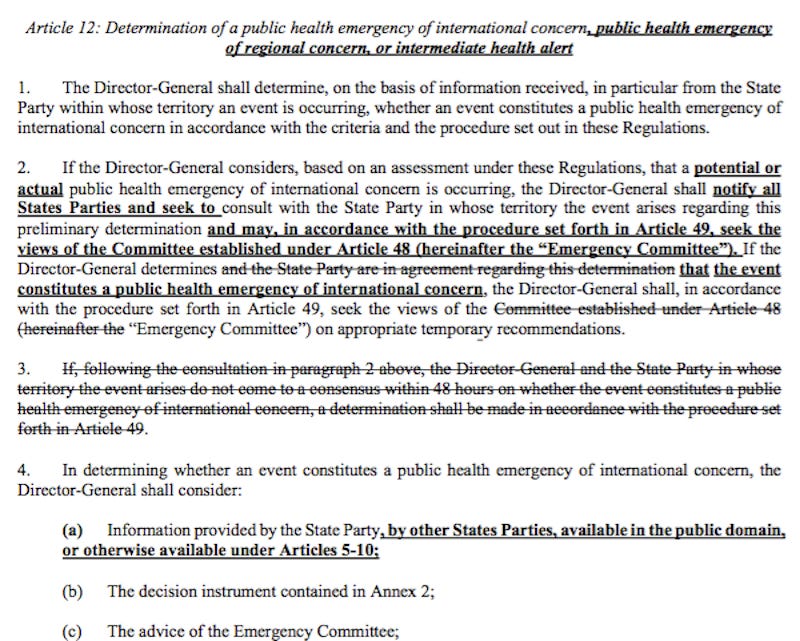

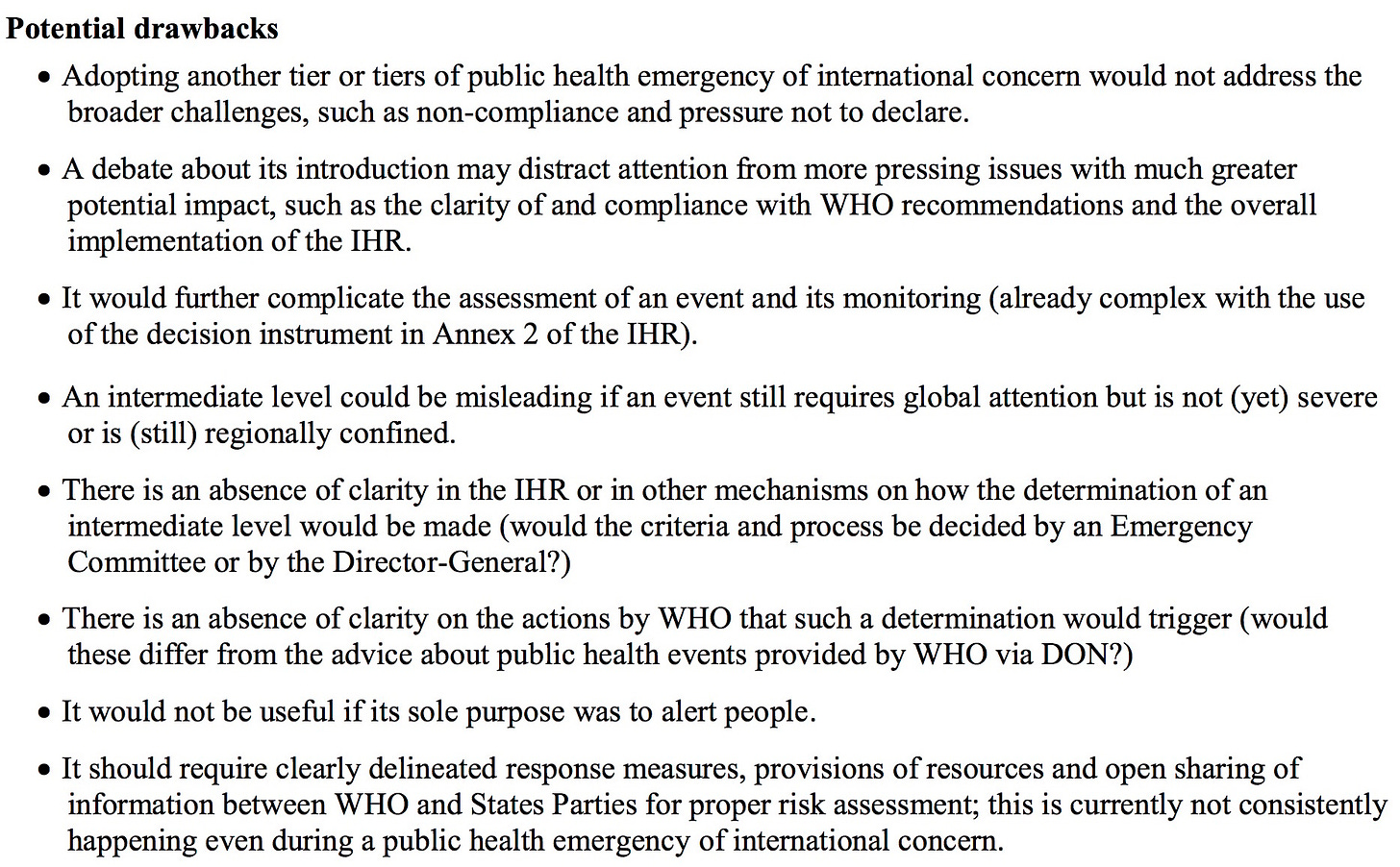



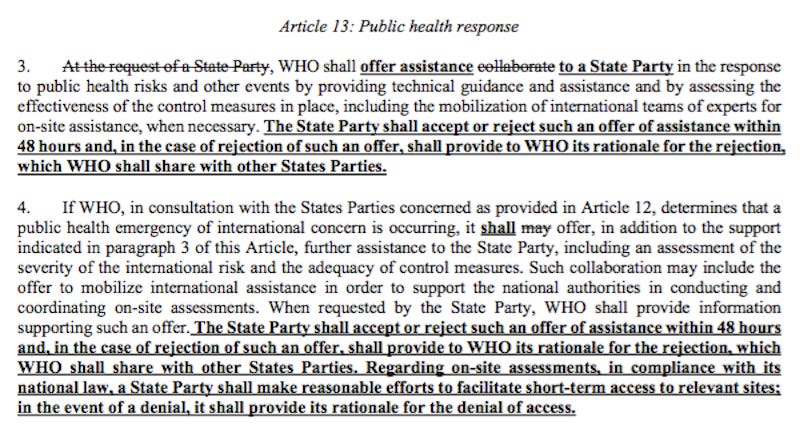



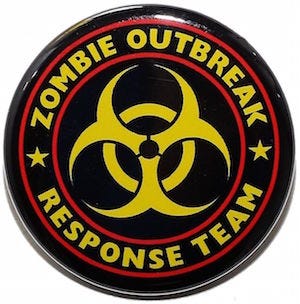




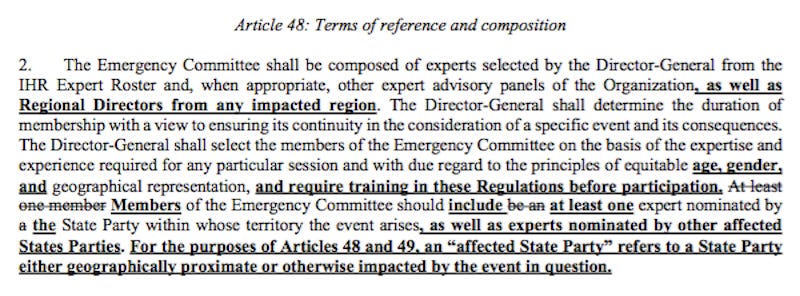




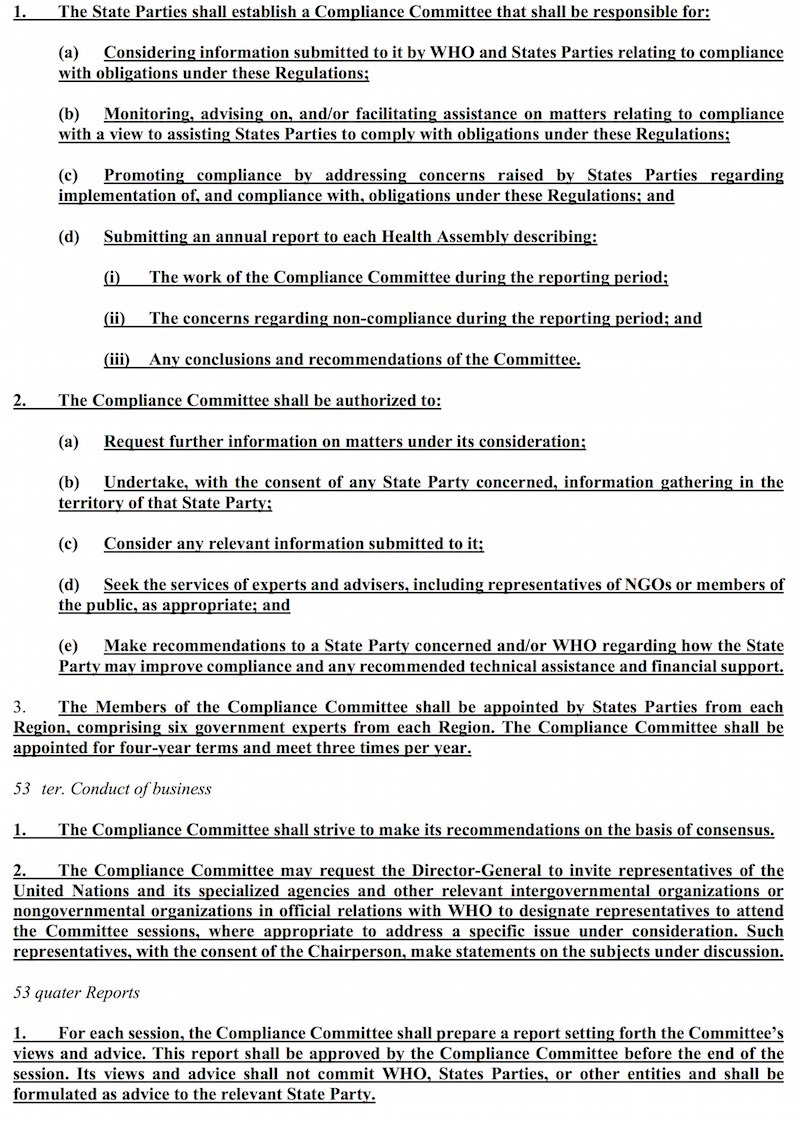

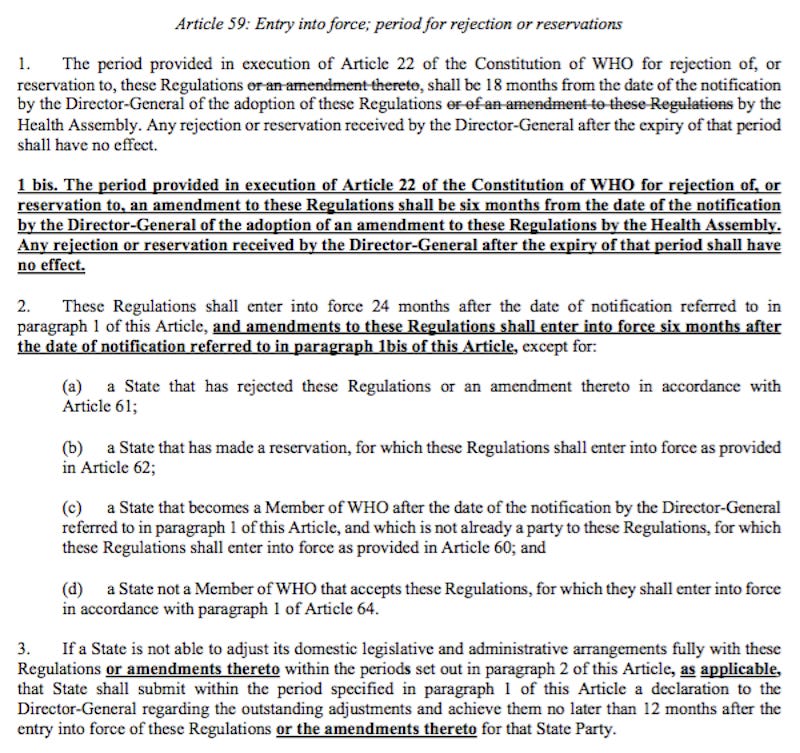

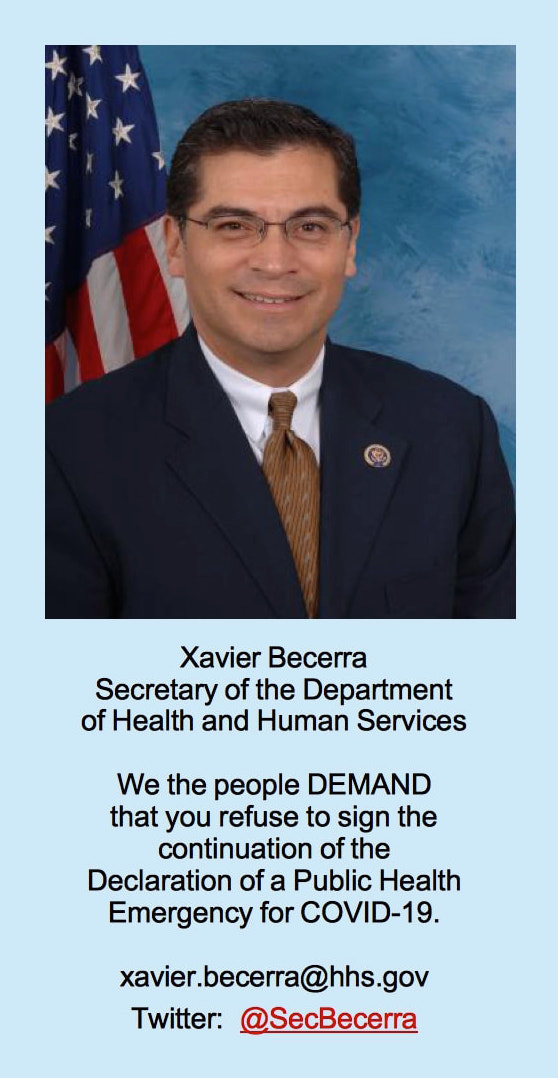


Contact me directly at 310-619-3055 if you have any questions or if you want to help spread the word.
Treaties Torching the Constitution https://frederickrsmith.substack.com/p/treaties-torching-the-constitution?s=w